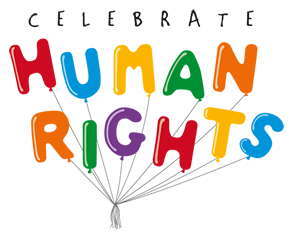We Have A Right To Work Without Sexual Harassment
By: Joyce Taylor
Swath Leadership, LLCProviders of Cutting Edge Management Consulting & Training Services
(703) 590-7003
Swath Leadership, LLCProviders of Cutting Edge Management Consulting & Training Services
(703) 590-7003
Since the inception of the regulations on the prevention and elimination of sexual harassment (29 Code of Federal Regulations (CFR) 1614.11), I’ve trained thousands of managers and employees on the prevention and elimination of this behavior. During this time, I’ve also heard numerous jokes, rebuttals, and justifications for this inexcusable and unlawful behavior. Those who have not been impacted – women as well as men – make comments of unbelief, denial, and even jealously that such incidents would even occur. Many of us, me included, would like to believe that with the education and awareness that has occurred since the early 80’s there would be greater sensitivity and intolerance to sexual harassment occurring in the workplace and our society.
Enter the allegations against Herman Cain and here we go again. In recent weeks I have heard such unenlighten comments as, the Europeans are laughing at our prudish attitudes; who cares; you know there were out to get him! Conversations on Facebook have confirmed that there are still people who believe, “If you compliment a woman on her dress, you will get hauled into the HR or EEO office”. So lest we forget here is a brief primer on the regulations that were added to Title VII of the Civil Rights Act of 1964, which states that sexual harassment is:
- Unwelcome sexual advances,
- Requests for sexual favors
- Other verbal or physical conduct of a sexual nature constitutes sexual harassment when,
- Submission to or rejection of this conduct explicitly or implicitly affects an individual's employment,
- Unreasonably interferes with an individual's work performance or creates an intimidating, hostile or offensive work environment.
Sexual harassment can occur in a variety of circumstances, including but not limited to the following:
· The victim as well as the harasser may be a woman or a man. The victim does not have to be of the opposite sex.
· The harasser can be the victim's supervisor, an agent of the employer, a supervisor in another area, a co-worker or a non-employee.
· The victim does not have to be the person harassed but could be anyone affected by the offensive conduct.
· Unlawful sexual harassment may occur without economic injury to or discharge of the victim.
· The harasser's conduct must be unwelcome.
And for the record, sexual harassment can impact employees and applicants.
So, is Herman Cain guilty of sexual harassment? Without review of the facts, which remain under legal confidentiality agreements, it is impossible to tell. For many of us in this field, the reactions and payoffs by the National Restaurant Association, his employer at this time, is the most disturbing part of this story. Did they cover for a senior executive in violation of their legal responsibility to maintain a harassment free environment? Did they intend to send the message they are open to unsubstantiated payoffs, which amount to character assignation and blackmail? Either way, the decision of the employer to provide such payoffs opens another entirely different and compelling debate on organizational responsibly under Title VII, which is a debate that will continue with the legal scholars.
What is important is to remember that although this regulation has been in place almost 30 years, the behavior still continues. We are not talking about people who willfully enter into relationships, but research shows them as being disenfranchised, who are in nontraditional career fields or environments that are insensitive to their category, who tend not to be in positions of “value,” are financially dependent on their jobs for survival and who lack the necessary support or networks to be heard. It is important, even critical, we understand the nature of this illegal and inappropriate behavior and that we each do more to educate ourselves on this matter.
Whether it is an employee, friend or a family member reciting what they experience or observe at work, we should be open to these stories, listen without judgment and help people who feel they are victims understand their rights and options. The history of these complaints shows the alleged victim does not want a payoff, they just want the behavior they are experiencing to stop and go away. Given the number of complaints still filed yearly with the EEOC, maybe reviewing the issue is not a bad thing. Maybe, hopefully, we can shed more light on behavior that should not be a part of the workplace or our lives.
To learn more about International Human Rights Day visit http://www.celebratehumanrights.org/


No comments:
Post a Comment